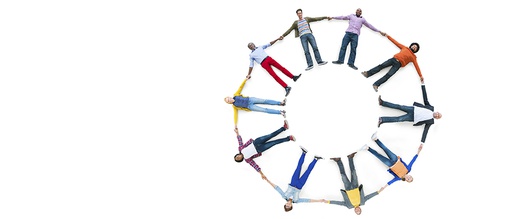In the intricate tapestry of human existence, the notion of unity transcends mere social constructs. The Bahá’í teachings, particularly the principle of “Be Even as One Soul,” offer profound insights into the essence of equality, judgment, and perspective. This principle exhorts humanity to recognize a shared identity that binds disparate individuals into a cohesive whole, thereby fostering universal harmony. Exploring this paradigm can illuminate the interrelation of these concepts and provide pathways for cultivating a more equitable society.
At the heart of the Bahá’í faith lies the assertion that humanity is fundamentally one. This tenet challenges the entrenched divisions of race, religion, and nationality, urging adherents to view one another through the lens of shared humanity rather than superficial distinctions. Such a perspective fosters a sense of belonging and kinship among individuals, cultivating an environment conducive to compassion and understanding. Thus, the call to “Be Even as One Soul” is not merely an abstract ideal; it is a practical framework for engaging with the complexities of human relationships.
The call for unity bears intrinsic implications for the concept of equality. In societies rife with disparities, it becomes crucial to dismantle the barriers that perpetuate inequity. The Bahá’í teachings proclaim that all individuals are entitled to the same rights and privileges, irrespective of their background. This affirmation demands a collective commitment to dismantle prejudices and systemic inequalities that have historically marginalized certain groups.
In practical terms, embracing equality requires an introspective examination of societal norms and individual biases. It necessitates a conscious effort to listen to diverse voices and perspectives, thereby enriching the collective narrative. As individuals internalize the principle of oneness, they begin to recognize the inherent worth of each person, irrespective of their differences. This realization serves as a catalyst for fostering inclusive environments wherein all can thrive.
Judgment plays a pivotal role in the interplay between equality and unity. Human beings are often quick to form judgments based on superficial characteristics, perpetuating cycles of division. In the pursuit of a Bahá’í-inspired lifestyle, one is encouraged to transcend these instinctive judgments and instead adopt a stance of inquiry and understanding. This shift toward a more discerning judgment calls for individuals to evaluate others based on their virtues and actions rather than preconceived notions.
In essence, the act of judgment must evolve into an exercise of discernment. This distinction is vital, as discernment fosters a deeper understanding, while judgment often yields animosity and division. An individual who practices discernment will seek to comprehend the circumstances that shape another’s behavior, thereby cultivating empathy and promoting healing rather than alienation.
The interconnection of equality and judgment extends into the realm of perspective. Perspective shapes our understanding of the world and influences our responses to others. Through the Bahá’í lens, perspective is not a static viewpoint; rather, it is a dynamic process that can be enriched by the experiences and insights of others. When individuals embrace the notion of being “Even as One Soul,” they are encouraged to broaden their perspectives and engage with the diversity of human experience.
Moreover, this expansion of perspective necessitates a commitment to continuous learning. Exposure to varied cultures, beliefs, and experiences enhances one’s understanding of the complexities of life. The Bahá’í teachings advocate for the pursuit of knowledge as a lifelong endeavor, emphasizing that education empowers individuals to contribute to a more equitable society. Through the cultivation of wisdom and knowledge, individuals can actively work to dismantle prejudices and promote justice.
However, it is imperative to acknowledge the challenges that arise when attempting to embody these teachings. The journey toward unity and equality is fraught with obstacles, including ingrained societal norms and individual biases. It requires resilience and unwavering commitment to the principles espoused by the Bahá’í faith. Yet, the potential for transformation is profound. As individuals embark on this journey, they become agents of change, fostering environments that reflect the ideals of justice and equity.
The principle of “Be Even as One Soul” also underscores the role of collective action in advancing these ideals. While individual efforts are commendable, the pursuit of unity and equality necessitates collaborative endeavors. Communities must come together to address systemic injustices and advocate for the rights of marginalized populations. This collective approach not only amplifies the message of oneness but also fosters solidarity in the face of adversity.
In conclusion, the Bahá’í teachings surrounding “Be Even as One Soul” inspire individuals to transcend division through the principles of equality, judgment, and perspective. This profound vision calls for a reevaluation of how we engage with one another—transforming judgment into discernment, enhancing perspectives through education and empathy, and collectively striving for unity amidst diversity. Embracing these teachings presents not only a framework for personal growth but a catalyst for societal transformation, urging humanity toward a future characterized by harmony and justice.
